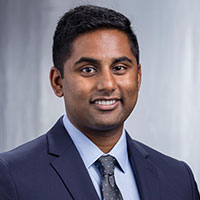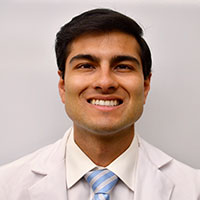The US’s Step 1 exam is increasingly career defining, driving many medical students to adopt punishing routines while studying for it. Pranav Reddy and Kunal Sindhu call for change
“I erupted from a void disassociated from reality . . . I forgot to engage in basic human activities, such as eating or relaxing.” This medical student’s account of studying for the United States Medical Licensing Exam Step 1 will be familiar to many American medical students and doctors. This board examination is increasingly career defining and, as a result, all consuming.
In the US, aspiring doctors are required to pass three sets of national board examinations, commonly known as the “Step” exams, before they are licensed to practise. The first two sets, Step 1 and Step 2, are completed during medical school and are marathon tests that last up to nine hours. In recent weeks, public debate has broken out about whether we need to reform this exam process in the US, following the publication of a commentary by a group of medical students on Step 1. The commentary and its supporters argue that an overemphasis on the test’s results has created a pernicious “Step 1 climate,” which harms trainees and reduces the quality of medical education.
As physicians in training, we’ve directly seen the untold depression, anxiety, and toxic stress that Step 1 causes. And against this backdrop, we think it is time for a reexamination of the impact of Step 1 and fresh scrutiny of how it may be undermining the mental health of American medical trainees and medical education.
For years, doctors have questioned the relevance of Step 1’s content to modern clinical practice. It seems that these doubts were not unfounded. A 2011 study found that Step 1 scores were not associated with the acquisition of “real world” clinical skills among medical trainees. Despite this, the ramifications of a low Step 1 score can be long lasting. The three digit Step 1 score is among the most important factors that residency programme directors cite in their selection of medical residents. Since it is not uncommon for competitive US residency programmes to require a minimum Step 1 score when screening applications for interview, poor scores can even prevent medical students from entering some specialties entirely.
The CEOs of the National Board of Medical Examiners (NBME) and the Federation of State Medical Boards have responded to these recent criticisms of Step 1. Yet their dismissive suggestion that if the Step exams required less revision, medical students might trade this time for “binge-watching the most recent Netflix series or compulsively updating their Instagram account” disappointingly fell back on generational stereotypes. They did not appear to grasp the brutal routines that medical students adopt when preparing for the exam, nor the impact the whole process has on their mental health. The backlash, and subsequent hat-in-hand apology, highlights how today’s doctors and trainees are increasingly resisting medicine’s culture of overwork and pushing for a better work-life balance.
In reality, the knowledge that a poor score could wipe out your career dreams means that medical students across the country routinely study for up to 12-15 hours a day during a 4-8 week preparation period. When we studied for these tests, we viewed entire weeks of our lives as “lost,” earmarked for examinations that to this day have had little to no role in the development of our clinical skills.
It was not always this way. Step 1 was once seen as a competency exam, which simply evaluated whether examinees knew enough to pass a stage of the licensing process. But its role has morphed over the past two decades. Today, even miniscule differences in applicants’ scores are wrongly seen as differences in their knowledge. As former president and CEO of the NBME Donald Melnick wrote, the board examinations have come to be used like “an off-label drug for purposes that have not been well-studied.” There are side effects to using this “drug” off-label: medical curricula have been reoriented to teach to the test; medical students skip class to memorise obscure pathways; and many are left exhausted, burnt out, and questioning the wisdom of pursuing a career in medicine.
This comes at a time when American medicine is grappling with a crisis of trainee burnout. Medical students are significantly more likely to suffer from depressive symptoms than members of the general population. These burnt out trainees are at risk of becoming burnt out physicians, who are more likely to commit medical errors, suffer from emotional exhaustion, and quit the profession entirely. Tragically, burnout also plays a part in physician and trainee suicide.
Two fixes would go a long way. Firstly, the NBME should report only if applicants have passed or failed Step 1. The current system of reporting three digit scores encourages residency programmes to inappropriately rank applicants accordingly. De-emphasising the value of this competency examination in the selection of residents would substantially improve the mental health of medical students studying for it.
Secondly, Step 1 should be refocused to cover only material that is relevant to future clinical practice. Medical schools should reorient their curricula away from esoteric examinations and towards the tools physicians need to function in modern medicine. Medical students would hopefully view the tests as more relevant to their own careers, which could help reduce burnout during the study period.
Physician and trainee burnout has brought American medicine to a point of crisis. Solving this will require systemic changes, but reforming Step 1 and its role in the selection of residents is an important first step and will benefit medical students across the country.
 Pranav Reddy is a joint MD/MPA candidate at Brown University and Harvard Kennedy School. Twitter @born_reddy
Pranav Reddy is a joint MD/MPA candidate at Brown University and Harvard Kennedy School. Twitter @born_reddy
Competing interests: I have read and understood BMJ policy on declaration of interests and declare the following interests: None.
 Kunal Sindhu is a radiation oncology resident in New York City. Twitter @sindhu_kunal
Kunal Sindhu is a radiation oncology resident in New York City. Twitter @sindhu_kunal
Competing interests: I have read and understood BMJ policy on declaration of interests and declare the following interests: None.
